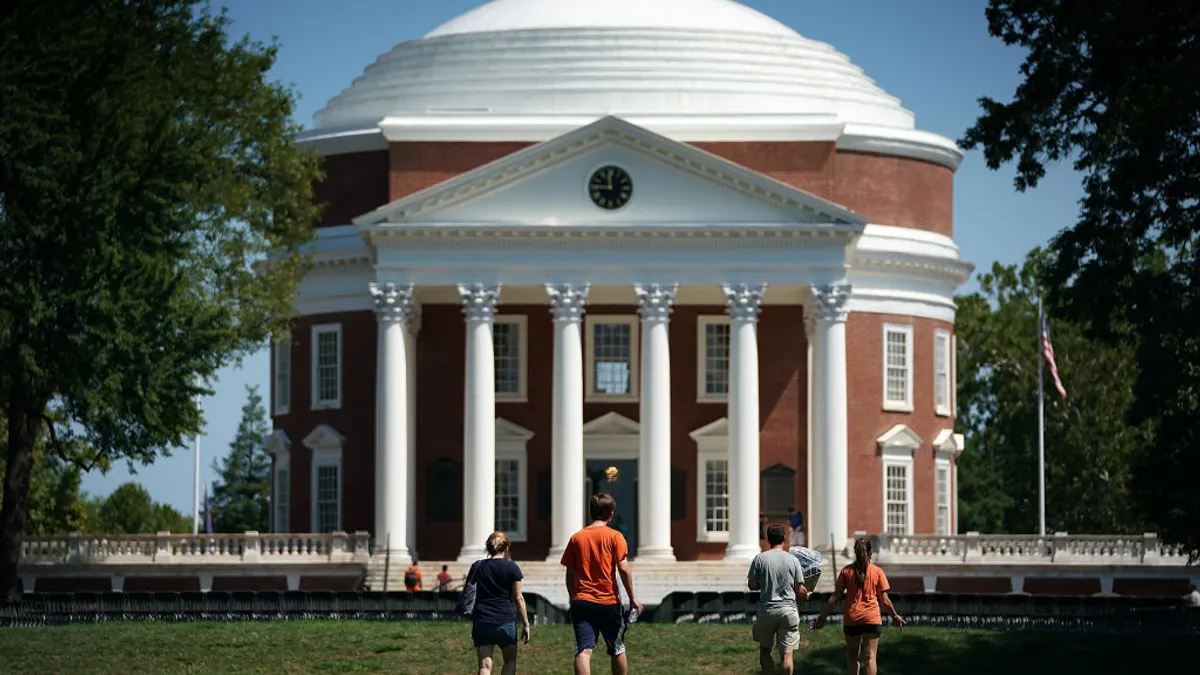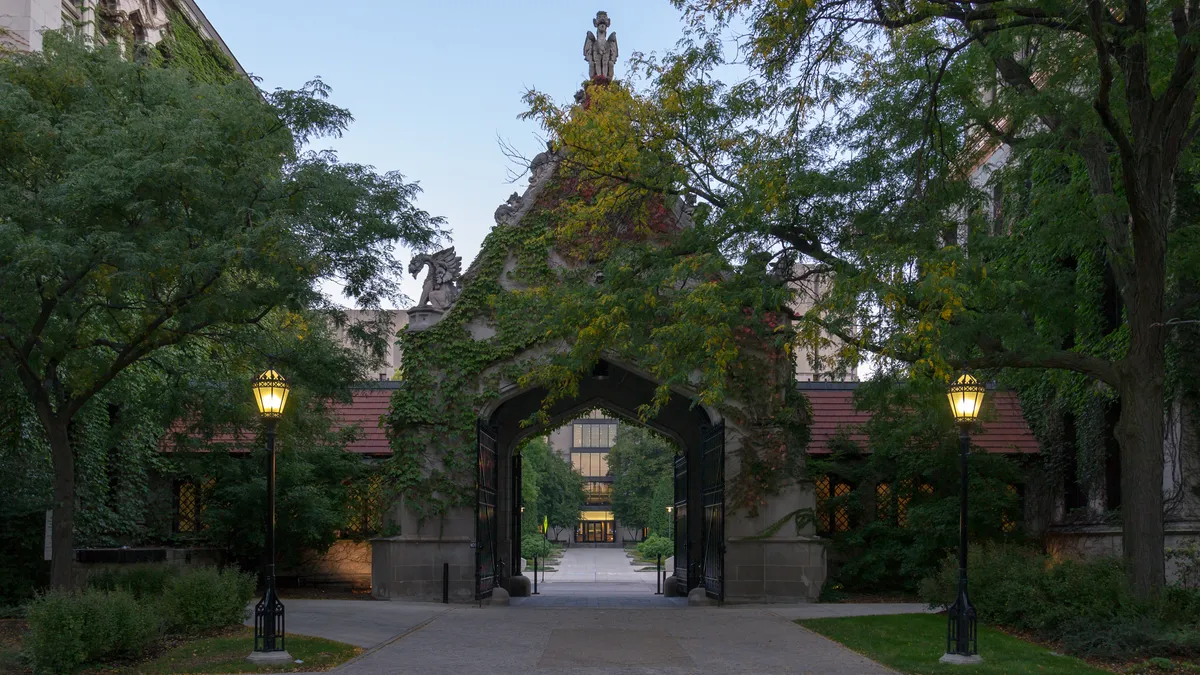Dive Brief:
- Middle Tennessee State University has adopted a healthcare risk assessment model to improve student retention.
- Using technology that can classify students on a scale of academic risk, the school deploys resources to students with the greatest needs in academic support.
- The model, which has led to a jump in retention rates, was accompanied by larger investments in tutoring and mentoring personnel.
Dive Insight:
Colleges and universities understand the benefits of using predictive analytics to help students remain in school, but it is the commitment of offering hands-on support that makes the difference in a student developing and applying the grit necessary to complete a degree.
With the challenges of cost, and the proliferation of options that will only grow for students, schools looking to maintain the traditional model of higher education access will have to prioritize student outreach as a necessary student affairs resource. This is particularly pressing for historically black and community colleges, which specialize in educating mostly low-income students with varying levels of college preparedness.





